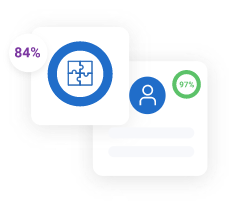- Application
- Information
Apply through Brive
We are official partners! Complete your application for free and earn benefits!
Free review on your application |
1:1 counselling by certified consultants |
Higher acceptance rate on your top choices |
Duration
1 Year
Language
English
Program Description
The Master in International Trade, Finance, and Development provide rigorous training in International and Development Economics. Its design reflects the view that a broad-based program focused on these fields offers the best training for ambitious students that want to pursue challenging careers in international organizations, government agencies, central banks, financial institutions, research and consulting firms, and NGOs.
Many International Trade, Finance, and Development graduates also pursue academic careers, either immediately or after one or two years of working in non-academic jobs.
The Master in International Trade, Finance, and Development students receive a thorough preparation in theoretical modeling, quantitative and empirical analysis, and handling of large datasets. In September, students take refresher courses in Mathematics and Statistics, and introductory courses in STATA, R, and Matlab. In the first term, they take core courses in Quantitative and Statistical Methods, International Trade and Finance, and Economic Growth and Development.
In terms two and three, students choose from a varied set of courses in different fields, ranging from the more applied and policy-oriented to Ph.D. level courses. They also attend a series of policy lessons delivered by international experts and complete their Master Project, under the supervision of the International Trade, Finance, and Development faculty.
International Trade, Finance, and Development faculty consist of internationally renowned scholars who have previously taught at top academic institutions, including MIT, Chicago, Stanford, and Harvard.
Many International Trade, Finance, and Development graduates also pursue academic careers, either immediately or after one or two years of working in non-academic jobs.
The Master in International Trade, Finance, and Development students receive a thorough preparation in theoretical modeling, quantitative and empirical analysis, and handling of large datasets. In September, students take refresher courses in Mathematics and Statistics, and introductory courses in STATA, R, and Matlab. In the first term, they take core courses in Quantitative and Statistical Methods, International Trade and Finance, and Economic Growth and Development.
In terms two and three, students choose from a varied set of courses in different fields, ranging from the more applied and policy-oriented to Ph.D. level courses. They also attend a series of policy lessons delivered by international experts and complete their Master Project, under the supervision of the International Trade, Finance, and Development faculty.
International Trade, Finance, and Development faculty consist of internationally renowned scholars who have previously taught at top academic institutions, including MIT, Chicago, Stanford, and Harvard.
Entry Requirements

Are you eligible to apply?
Sign up, check the entry requirements, and find out your compatibility with the program.
Curriculum
Careers
- Consulting Firms
- Financial Services
- Government & Authorities
- International Organizations / Non-profits
- Research & Academic Institutions
- Other Industries
More
Need help applying to this program?
Schedule a free 20-minute counseling session today!
Similar programs |